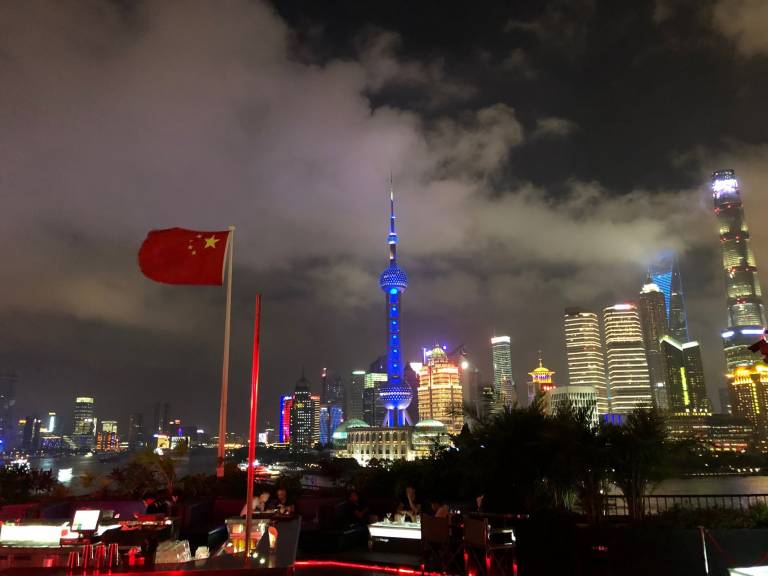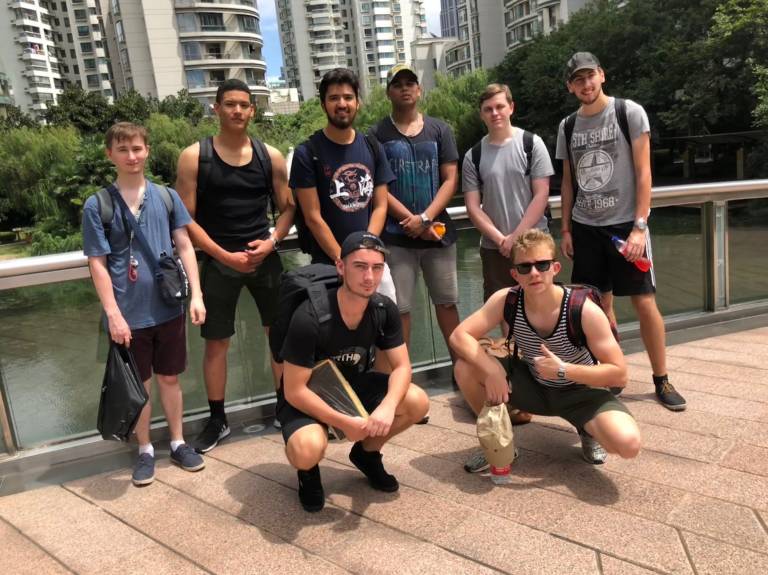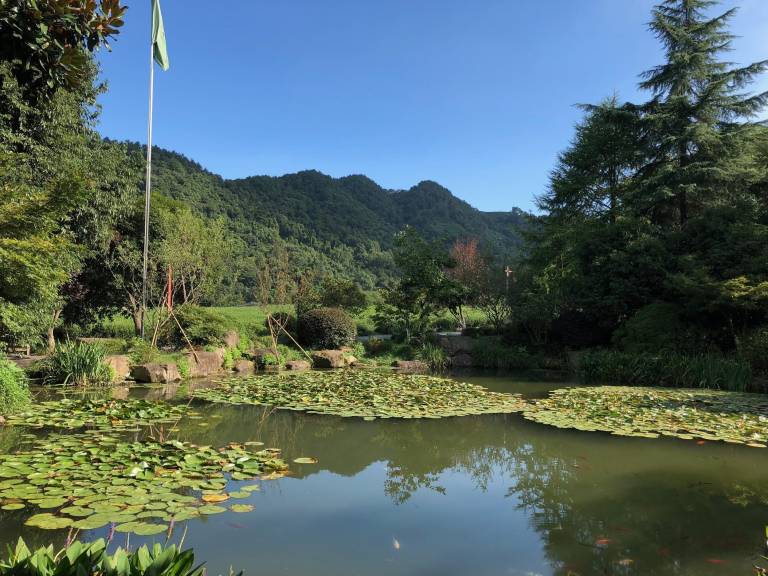Study China Programme
19 March 2019
'Study China was without a doubt the best three weeks of my life'. Read on to hear more about Bill's unforgettable experiences in China.

Bill Sims, Laws
Study China was without a doubt the best three weeks of my life. The programme offers three government-funded weeks at a top Chinese university learning Mandarin and going on cultural excursions. No other experience offers such a unique range of activities: there really is something for everyone. If you’re looking for something to do this summer that will be fun, culturally enlightening, affordable, educational, and look great on a CV, then this is the ideal opportunity.
The Application
I first heard about the programme at UCL’s Study Abroad Fair and picked up a flyer, which gathered dust on my desk for the next 5 months until I decided to shoot off an application one day. I’m now very glad I did so ─ the application is pretty straightforward and shouldn’t take long (a couple of questions about why you want to spend a summer in China and how you’d benefit from it) with some great payoff.

The Locations
There is a choice of university available: I chose Zhejiang University, which is in Hangzhou (a ‘small’ city by Chinese standards, but it has a bigger population than London). I absolutely loved Hangzhou, a scenic and environmentally conscious city built around the West Lake. This is one of the most beautiful natural sights I have ever visited ─ the boat tour around this perfectly picturesque lake is absolutely unmissable.
If you prefer the big city life, then there is another choice of university in Shanghai, which is definitely worth a visit ─ I spent hours at the iconic Bund, especially when it lit up after sunset. Shanghai is about a three hour drive (or a very affordable 45 minute bullet train) from Hangzhou.

The Average Day
Following orientation and the obligatory tours (I personally had to do these first few days without my luggage ─ maybe don’t fly with Aeroflot!), things settled into a decent structure. Usually the mornings are dedicated to language classes (there are around 40 hours of these) which are based around speaking like a local, so they never get dull.
There’s always lots of chances to practise the language skills you learn: the local restaurants and bars will be delighted to meet and serve foreigners, who are rarely seen in Hangzhou. The culmination of the classes at the closing ceremony is also pretty spectacular.
The afternoons and evenings were reserved for excursions and other activities. These involved talks about Chinese business culture (from a leading industry millionaire), and visits to local tourist hotspots. I personally really enjoyed the tea plantation, as well as a musical-style show which featured a performance of eye-catching traditional Chinese dance. A light show commemorating Hangzhou’s hosting of the 2016 G20 Summit (interrupted by a breathtaking tropical typhoon) was another totally unique highlight.
There’s also a huge amount of free time to explore the local area and make friends, plus a long weekend to travel further afield: some people went trekking in the Yellow Mountains or even as far as Beijing. I personally took an unforgettable bullet-train excursion to Shanghai with some of the friends I had made, during which we stayed in a luxury Airbnb at the top of one of the city’s famous skyscrapers for just £15 a night each.

The Cost
You’ll have to pay for flights and visa costs (which, if you plan it properly, can come to under £800 in total), as well as most living costs such as food and free-time activities. Luckily, the cost of living in China is dirt cheap: I spent around £350 over the three weeks, which covered a whole weekend in Shanghai complete with accommodation, a wall-to-wall schedule of activities, souvenirs and gifts, complete with large amounts of food and drink in restaurants and bars every day.
That means accommodation, tuition, a starting food allowance at the university cafeteria, and entry into all the various tourist attractions and museums are all funded. If that doesn’t convince you, there are also UCL short-term study abroad bursaries available to apply for, which more than covered my living costs. Study China is independent of UCL (it’s run by the University of Manchester), but the uni is always keen to support people going abroad.
Overall, I would highly recommend this experience, especially if your degree doesn’t include a year abroad. Not only does it show future employers that you have done unconventional activities and faced challenges in unusual locations, but it is also an unparalleled amount of fun. I made lasting friends abroad, and gained a new appreciation for Chinese food (if it was possible to appreciate it even more).
 Close
Close

